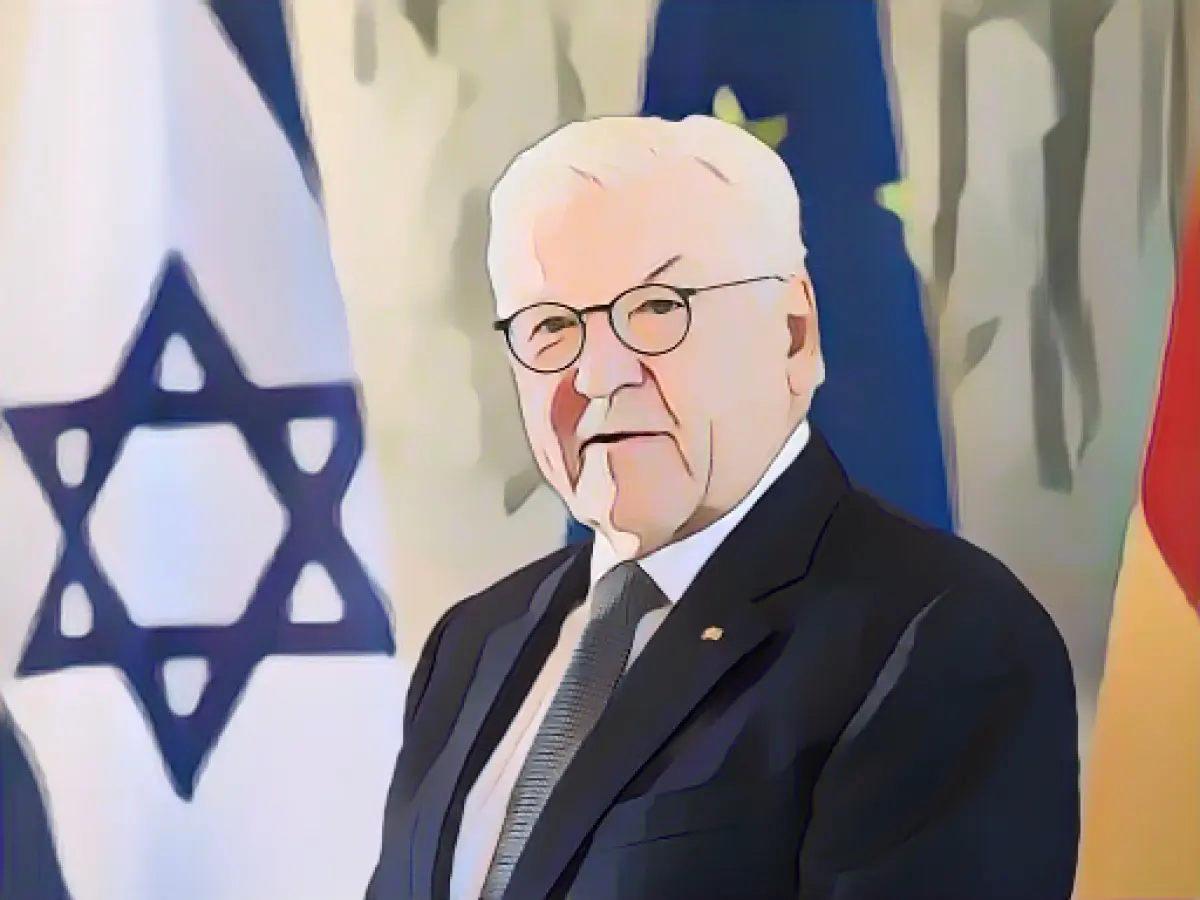Title: Frank-Walter Steinmeier's Journey to Israel amidst Tumultuous Times
Frank-Walter Steinmeier, the German Federal President, seems to be sending a whisper of normalcy amidst chaos – his trip to Israel, although not unusual for high-ranking politicians after the Hamas attack on the 7th of October, won't be your average visit. Olaf Scholz and Annalena Baerbock, German Chancellor and Foreign Minister respectively, have also visited Israel. However, what sets Steinmeier apart is his choice to stay overnight and add an extra day to his visit.
The reasons for his choice are as peculiar as his journey itself. For starters, the German President's office has kept the itinerary under wraps, a departure from conventional protocol, due to security concerns. A day before his departure, Steinmeier explained his purpose in a video message. This, too, is an unusual approach for him.
Moreover, it's uncommon for the German President to embark on such a visit accompanied by the President of the German Parliament, Bärbel Bas. The two will be heading to Israel first, followed by Oman and Qatar, where they'll meet key leaders to discuss the ongoing Middle Eastern conflict and find a resolution to it.
Steinmeier's message for the region is clear. He emphasizes the importance of releasing "all hostages" to end the conflict. According to him, Israel has the right to defend itself against Hamas but must adhere to humanitarian rules in the process. Civilians should be protected, and there should be no restriction on the supply of basic necessities. Steinmeier plans to discuss the feasibility of evacuating the sick and children during the ceasefire, stressing that every human life holds equal value.
In a political context, the need to differentiate persists. While sympathizing with all civilian victims of the conflict, Steinmeier insists on maintaining a political distinction, asserting that the terror against Israel must not be repeated. The ultimate goal remains a two-state solution, providing security for Israel and self-determination for Palestinians. This is a path that, in Steinmeier's opinion, has been marred by missed opportunities and expansion of Israeli settlements in the West Bank.
Though presidencies aren't known for subtle criticism, Steinmeier's message for Israel's President Izchak Herzog is as delicate as it is firm. His critique, although not unfamiliar, being shared by other partners, is made more poignant by the shared history between the two leaders.
Steinmeier's visit to Ankara, however, was focused on addressing the ongoing conflict in Gaza and promoting regional stability. Among his priorities were:
- Rejecting Trump’s Gaza Relocation Plan, which he deemed unacceptable, as it violated international law.
- Urging intensive international efforts to achieve a lasting ceasefire in Gaza and push for a two-state solution to the Israeli-Palestinian conflict, emphasizing the importance of diplomacy.
- Cooperating with Türkiye on regional challenges, such as Syria and Ukraine, putting emphasis on long-term peace.
- Addressing the impact of xenophobia, racism, and Islamophobia in Europe, particularly on the Turkish community, reflecting his commitment to social and political issues affecting regional stability.
In summary, Steinmeier's journey to Israel is anything but ordinary. The reasons for his visit and the meetings he will undertake are shrouded in mystery, adding curiosity to his itinerary. What remains clear is that, at the heart of his visit, lies the hope for a peaceful resolution to the Middle East conflict and the protection of humanitarian rights during these trying times.








